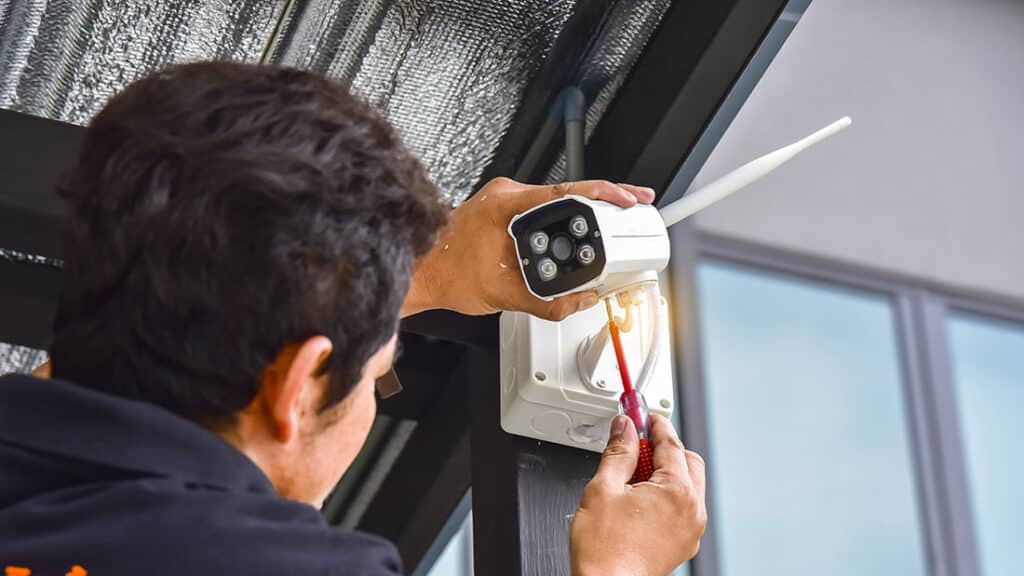When installing or upgrading a security system, it’s important to avoid liability issues that may arise in the future if the owner experiences a break-in, theft, fire, or other damaging incident. If an owner believes that the installer is at fault for this, they may sue and create a difficult, expensive legal battle…not something any installation company wants to experience.
There are a number of practices and contract features that installers can use to help limit their liability and improve their position if it’s ever necessary to deal with a lawsuit. Let’s take a look at several tips to keep in mind.
Keep Up with Industry Standards and Codes at All Levels
Industry standards, local building codes, manufacturer instructions, and general AHJ (Authority Having Jurisdiction) requirements – these all work together to instruct installers how to properly and safely work on security systems. Active installers need a full understanding of these codes and how to follow them to avoid any future problems. These requirements sometimes shift over time as well, so it is also important for installer to periodically review standards and change practices if necessary.
If something does go wrong with a security system, and the owner can prove that the installer did not follow building codes, standards, instructions, etc., this can open up the company to serious liability issues.
Make Sure Your Contracts and Estimates Use Accurate Language
Always describe the exact work you are doing very accurately in contracts so the wording cannot be used against you later. Contracts should also mention any important details of the specific job that could impact future liability issues.
For example, adding a smoke detector to a smart home security system is a safety measure, but it may not meet standards like NFPA codes defining a residential fire alarm system. Likewise, there may also differences between a full “burglar and fire” system vs. an “intrusion” system vs. installing a motion detector. Contracts can’t have any confusion regarding what work was actually done.
It’s also a good idea to specify where work was done. If no security devices were installed in the basement or the second story of a house, for example, note that in your contract so that, if a problem does arise from these locations, you cannot be held liable for alarms you didn’t install. If you have any questions about your contracts or how to create them, it’s always a good idea to visit an attorney with experience in your industry to help craft accurate contract templates.
Always Include a Disclaimer Notice
A disclaimer notice is a section added to a contract that essentially states that the party responsible for the service (such as the installation of a security system) is not responsible if the system is used incorrectly by the owner. This is a very important addition that helps reduce liability from all kinds of user error. If your contracts don’t already contain this kind of disclaimer notice, you may want to visit an attorney and see if you could benefit from one.
Sometimes alarm installation contracts have special disclaimers for specific types of alarms, such as the situation we mentioned above where installing a smoke detector may not meet the requirements of a full residential fire alarm system.
Look Into a Possible Limitation of Liability Clause
A limitation of liability clause essentially says that, if a company is sued, the damages are limited to a certain amount, such as a specific monetary amount or current insurance coverage, etc. These clauses are common in industries where lawsuits are frequent, but that doesn’t always make them a good idea. They are often found unenforceable and may not help your defense if a lawsuit does occur. Talk to your attorney about limitation of liability clauses too, and if they could be a useful addition to your contracts or if they are better off avoided.
Avoid Potential Legal Pitfalls When Working with Clients
Don’t agree to installations that may be illegal or lead to conflict with state laws. For example, avoid placing security cameras in areas where they may be responsible for an invasion of privacy (spying on neighbor’s yards or into their windows, etc.). Explain to owners why certain placements or positions can violate privacy laws. It’s also a good idea to stay away from gimmicks like dummy cameras which could potentially cause confusion or trouble down the line. Clients don’t always know what’s best, and you could share in liability if their decisions lead to future problems.
Final Note
It’s important for all alarm installers to maintain the right credentials and insurance for their work. This can help reduce the possibility of serious mistakes through ongoing qualification and industry standard knowledge, while also providing a safety net to cover costs that may arise if a job turns into a legal issue. If you aren’t sure what exactly your insurance covers, it’s a good idea to take a look, or contact El Dorado today to learn more.






